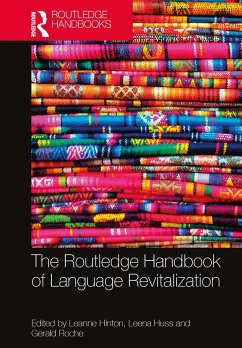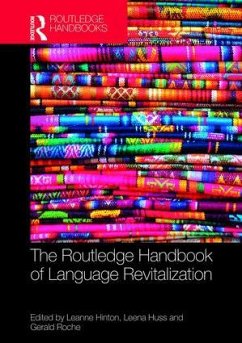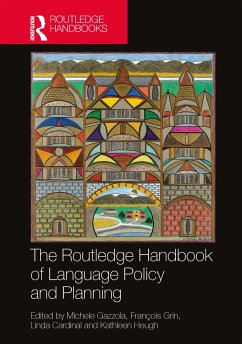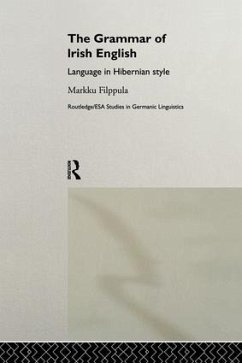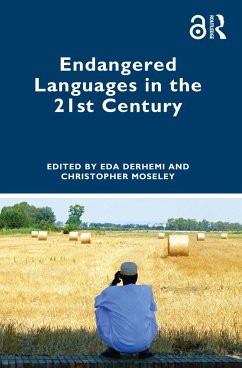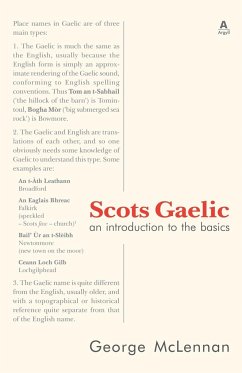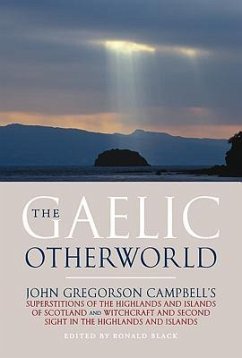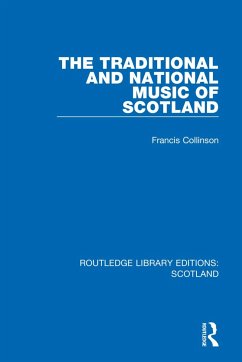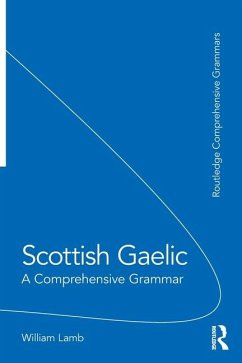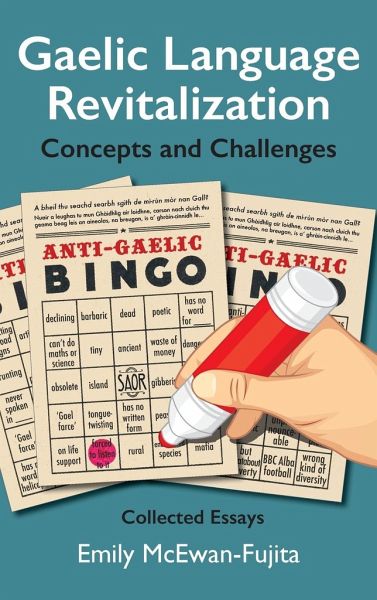
Gaelic Language Revitalization Concepts and Challenges
Collected Essays

PAYBACK Punkte
25 °P sammeln!
Based on research about Scottish Gaelic, this collection focuses on a number of interconnected themes, including the intersection of neoliberalism and minority language revitalization; discourses of language death and revival in literature, media, and academia; the intertwining of language ideologies and affective stances in speaking and speakerhood; power and knowledge in the research and representation of minority language communities; and the theoretical frameworks of reversing language shift (RLS) and communities of practice as applied to language revitalization efforts in Scotland and Nov...
Based on research about Scottish Gaelic, this collection focuses on a number of interconnected themes, including the intersection of neoliberalism and minority language revitalization; discourses of language death and revival in literature, media, and academia; the intertwining of language ideologies and affective stances in speaking and speakerhood; power and knowledge in the research and representation of minority language communities; and the theoretical frameworks of reversing language shift (RLS) and communities of practice as applied to language revitalization efforts in Scotland and Nova Scotia. Essays include the author's previously published articles and book chapters spanning the period 2005-2013, as well as three previously unpublished papers. The collection is suitable for undergraduate and graduate-level courses in multiple fields including linguistic anthropology, sociolinguistics, Celtic studies, and education. "I'm glad that a new volume strong on Gaelic survival, persistence, and revitalization is now on offer, with due emphasis on social setting and social factors. Congratulations to the author on bringing such a strong body of work out in a form where it can be appreciated as a whole." -Dr. Nancy C. Dorian TABLE OF CONTENTS Introduction xi Part 1: Knowledge and Representation 1 1 Sociolinguistic ethnography of Gaelic communities 3 2 Research and representation: Gaelic and Uist 43 Part 2: Discourses of Death and Revitalization 59 3 Discourses of death and denigration: Ethnolinguistic differentiation and the ideology of contempt 61 4 "Gaelic doomed as speakers die out"? The public discourse of Gaelic language death in Scotland 95 5 Language revitalization discourses as metaculture: Gaelic in Scotland from the 18th to 20th centuries 115 Part 3: Neoliberalism and Language Revitalization 149 6 Neoliberal discourses of Gaelic language revitalization: The "Gaelic economy" and "rocketing spending" 151 7 Neoliberalism and minority language planning in the Highlands of Scotland 179 Part 4: Language Ideologies and Affect 197 8 Ideology, affect, and socialization in language shift and revitalization: The experiences of adults learning Gaelic in the Western Isles of Scotland 199 9 Ideologies and experiences of literacy in interactions¿between adult Gaelic learners and first-language Gaelic speakers in Scotland 245 10 Working at "9 to 5" Gaelic: Speakers, context, and ideologies of an emerging minority language register 267 Part 5: New Speakers and Reversing Language Shift 285 11 Gaelic revitalization efforts in Nova Scotia: Reversing Language Shift (RLS) in the 21st century 287 12 "Ìle ga Bruidhinn": A community-based Gaelic dialect revitalization proposal 315 References 333 Index 365



